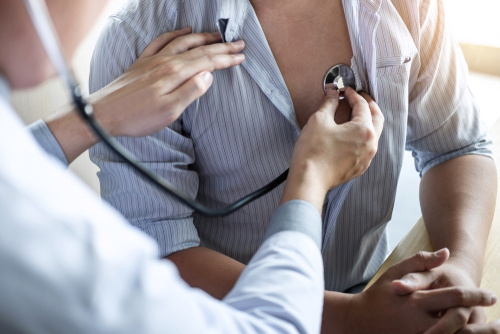
The month of March is full of fun holidays and silly national days like St. Patrick’s Day, National Oreo Cookie Day and National Napping Day. But one important holiday that is often overlooked actually spans the whole month of March—Caffeine Awareness. According to the FDA, 80% of adults in the United States consume some form of caffeine every day. This can include anything from your typical cup of coffee to tea, supplements or soda. To put it lightly, Americans are so obsessed with their caffeine that we’ve dedicated a whole month of awareness to this natural stimulant! The heart experts at AMS Cardiology are here to share everything you need to know about caffeine and your cardiovascular health to sip safely this month.
Where Is Caffeine Found?
Caffeine naturally occurs in roughly 60 plant species, with the most well-known being coffee beans, tea leaves and cocoa beans. You can see it in the form of guarana, found in many popular energy drinks and yerba mate in teas that are popular in South America. Not only found in beverages, you can also find caffeine in many packaged foods as well as dietary supplements.
Caffeine and Heart Health
Caffeine is a natural stimulant, and, in some cases, high doses have been shown to temporarily raise heart rate and blood pressure in certain individuals who have sensitivities or who don’t regularly consume caffeine. In the past, caffeine was thought to directly correlate with cardiac risk but recent studies have shown that regular caffeine intake probably does not increase your risk for coronary heart disease—in fact, it may be beneficial to your health. With enough exercise and limited exposure to smoking, your heart health should be well maintained with normal consumption of caffeine.
Home Much Is Too Much?
In following a healthy diet and lifestyle, the FDA suggests 400 mg as being a healthy dose of daily caffeine. If you’re someone who struggles with keeping their high blood pressure in check or have had a heart attack in the past, you should consult with your physician on your suggested intake.
If you’re wondering how your 2 cups of coffee a day stacks up, 400 mg is roughly four or five cups of coffee a day. If you like to mix and match your daily cup o’ joe with a soda or an energy drink, this also counts towards your daily intake. Be mindful that a 12 oz. can of soda typically has about 40 mg of caffeine in it, while an 8 oz. energy drink can contain anywhere from 40 mg to 250 mg of caffeine.
How to Cut Back on Caffeine
If you’re looking to cut back on your daily caffeine intake, we recommend doing so gradually. Stopping consumption abruptly or “cold turkey” can cause unpleasant withdrawal symptoms like dizziness, headaches, fatigue, anxiety and poor concentration. While caffeine withdrawal is not considered dangerous, it’s recommended to cut back slowly to avoid these negative effects. Speak with your physician who can provide further direction on how to cut back your caffeine intake.
When consuming caffeine, remember—moderation is key. If you’re feeling jittery, restless or have an increased heartbeat or elevated blood pressure, it may be time to speak to your physician about your intake. Whether you’re looking for help with lowering your high blood pressure or you’re seeking the best treatment for cardiovascular disease, know the physicians at AMS can help. Contact us today for all your cardiovascular needs.

